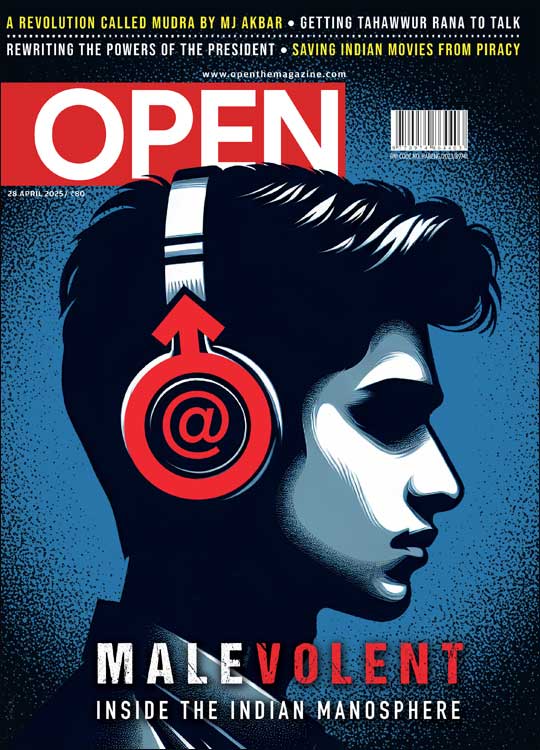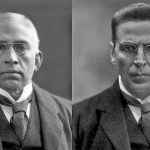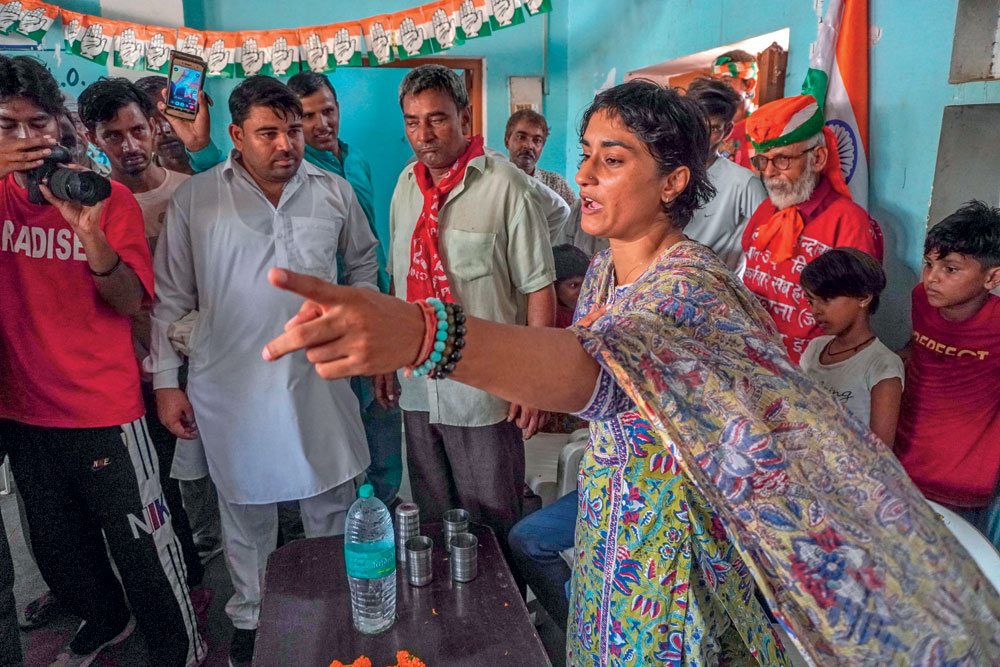US Election 2016: Did the Khans Break the Trumpet?
An unknown immigrant family at the Democratic convention may have shaken the loutish Republican candidate a bit but this election is not yet Hillary Clinton’s to lose
 James Astill
James Astill
 James Astill
James Astill
 |
04 Aug, 2016
|
04 Aug, 2016
/wp-content/uploads/2016/08/Trump-Khan1.jpg)
AMONG THE MANY surprises of this seething, perplexing American election season is the fact that its current stars, a hundred days from polling, are a family of Pakistani Americans from Virginia.
That reflects, above all, the power of the rebuke Khizr Khan, a retired immigration lawyer who moved with his family to America from Abu Dhabi, delivered to Donald Trump at the Democratic convention in Philadelphia on 28 July. The reality television star and Republican nominee describes America’s Muslims, a strikingly prosperous and law-abiding community, as terrorist-loving fifth-columnists. He has sworn to impose an entry ban on foreign Muslims, until America can “figure out what is going on”. Such a ban, Khan noted, might have stopped his son, Humayun, moving to America as a toddler. A captain in the US army who hoped to be a military lawyer, Humayun was killed at the age of 27 as the head of his troops by a suicide bomber in Iraq.
“Donald Trump consistently smears the character of Muslims,” said Khan, speaking before a hushed crowd of around 10,000 people. “He disrespects other minorities: women, judges; even his own party leadership. He vows to build walls, and ban us from this country. Donald Trump, you’re asking Americans to trust you with their future. Let me ask you: Have you even read the United States constitution? I will gladly lend you my copy. In this document, look for the words, ‘liberty’ and ‘equal protection of law’. Have you ever been to Arlington Cemetery? Go look at the graves of brave patriots who died defending the United States. You see all faiths, genders and ethnicities. You have sacrificed nothing and no one.”
Khan was not well known—even to the Democratic top brass—before he spoke. He had accepted their invitation to attend the convention after he had drawn attention by writing an article condemning Trump and praising his dead son. Then the Democrats asked him to speak, shortly before Hillary Clinton, their presidential nominee, and so offered to send Khan a speech- writer to help him prepare; he refused. They then offered him the use of a teleprompter for his performance; no need for that either, he said. He had discussed his remarks with his wife, Ghazala, and knew exactly what he wanted to say.
His attack on Trump’s blessed ignorance of what it means to sacrifice was especially coruscating—because of an echo it contained to a praise poem Trump had arranged for himself at the Republican convention the week before. The gathering was held in Cleveland, Ohio, and boycotted, to protest against Trump’s capture of the party’s presidential ticket, by most Republican heavyweights. Among the no-shows were the past two Republican presidential nominees, Mitt Romney and John McCain, the past two Republican presidents, the Georges Bush, also John Kasich, the Republican governor of Ohio, where the convention took place, and a host of Republican lawmakers and billionaire benefactors. This had left Trump heavily reliant on his wife and four adult children to sing his praises; his son Eric Trump said this of his father’s political campaign: “To make this sacrifice [and] run for the most powerful yet unforgiving office in the world—there is no greater calling and there is no more selfless act.”
Who had sacrificed more? The billionaire builder, whose absurdly self-aggrandising campaign is little more than a personality cult based on his self-professed genius as an entrepreneur and dealmaker? Or the Khans, who had lost a son fighting for their family’s adopted homeland? It seems many Americans’ sympathies were with the latter. Immediately after Khan finished speaking in Philadelphia, Google reported a spike in the search term ‘register to vote’. Yet this, amazingly, did not dissuade Trump from proceeding to attack the bereaved Muslim family viciously.
He slandered the dead soldier’s mother, Ghazala, who had stood silently besides her husband during his speech, with her dupatta draped demurely over her head. “His wife, if you look at his wife, she was standing there. She had nothing to say,” spewed Trump. “She probably—maybe she wasn’t allowed to have anything to say. You tell me.” He also rebuked Khan for his criticisms. “I think I’ve made a lot of sacrifices. I work very, very hard. I’ve created thousands and thousands of jobs, tens of thousands of jobs, built great structures. I’ve had tremendous success. I think I’ve done a lot.”
The enthusiasm that Democratic speakers worked up was a rebuke to the cynicism about professional politicians upon which Trump has thrived
This was a strange way for the Republican candidate to launch his campaign into the final three months of America’s presidential contest. American politicians do not, by and large, denigrate the grieving relatives of American war heroes. Even by the wretchedly low standards of a politician who has, over the past 12 months, called Mexicans rapists, taunted women over their looks and menstrual cycles, performed a mocking imitation of a disabled reporter on the stump and urged his supporters to beat up a protestor, Trump’s behaviour was plainly reprehensible. Yet, in the Khans, it turned out, the bully had for once met his match. Instead of limping away, bruised and humiliated, as Trump’s 16 Republican rivals ended up doing during the primaries, they refused to yield.
In a round of television interviews, and a comment piece in The Washington Post, Ghazala Khan pointed out that it was not Islam that had dissuaded her from speaking, but her grief. As she stood before a television audience of millions, beneath a screen depicting a giant portrait of her dead son, the pain of her loss was raw as it ever had been. In her interviews, she remembered Humayun, her middle child, and his passion for Thomas Jefferson and public service. It was why he had joined the army. It was why, in high school, he had taught disabled children to swim. “I love when they have a little bit of progress and their faces, they light up,” she recalled him telling her.
Ghazala Khan, far from being the dumb chattel of Trump’s description, had edited his speech, her husband chimed in. Indeed, she had persuaded him to tone it down, by excising some comments he had wanted to make about Trump’s moral unfitness to lead the Free World, as a licentious, thrice- married divorcee (he once described his promiscuity in the 1980s, when the HIV virus was spreading in his native New York, as his “personal Vietnam”). Khizr Khan had also wanted to mention the humiliation of wife number three, Melania Trump, at the Republican convention: it emerged that parts of her speech, praising her upstanding upbringing in Slovenia, had been lifted from a speech by Michelle Obama.
“She would edit,” Khan said of his wife’s role in his convention performance, “And she would say, ‘No, you’re not going to say this.’ ‘No, this is not for the occasion’.” For the most part, in the blanket media coverage of the family that followed the convention, Khan followed that wifely injunction. He set Trump’s loutishness against the goodwill of patriotic Americans that he claimed was far more characteristic of his adopted country. He described, since the convention, being congratulated and embraced by strangers in the street. By contrast, Trump, he felt unable to resist saying, had a “black soul”.
That was not all Trump appears to have got badly wrong in a convention season which had the potential to make or dash his presidential ambitions. The Republican gathering in Cleveland was a mess. It was badly organised, thinly-attended, riven with discord and deeply polarising, at a time when Republican leaders, who mostly loathe Trump, wanted to emphasise party unity and broaden his appeal to the electorate.
Perhaps the biggest havoc in Cleveland was caused by Ted Cruz, Trump’s nearest challenger in the primaries. Given a prime- time speaking slot, which Trump’s team hoped he would use to endorse their man, he pointedly refused to do so—and indeed suggested Republican voters should vote their “conscience” and forsake him. Amid uproar from Trump’s outraged supporters, Cruz and his wife had to be escorted from the arena by bodyguards. It was a dreadful image, beamed across to 30 million television viewers, of America’s Grand Old Party.
In the Khans, the bully has for once met his match. Instead of limping away, as Trump’s 16 Republican rivals ended up, the Khans refused to yield
Trump had promised his coronation would sparkle with showbiz glitz. But Hollywood votes Democrat; for entertainment, he therefore fell back on a couple of reality television stars and a professional woman golfer. From my perch in the press gallery, the convention was often embarrassing to watch. It was so puerile. And then there was Trump’s own speech, the headline event of the gathering. It was powerful and well-delivered; also ridiculous.
Instead of trying to expand his appeal to a sceptical electorate, Trump doubled down on the pessimism and fear harboured by his existing, already well-committed, fan base of working-class Whites. He portrayed America, which has in recent years enjoyed record job growth and a historic drop in violent crime, as a “divided crime scene”, whose beggared and humiliated citizens creep around in fear. Abroad, he said, America has become a laughing stock, synonymous with weakness and failure. Naturally, he blamed Hillary Clinton, who was secretary of state from 2009 to 2013, for this state of affairs. “This is the legacy of Hillary Clinton: death, destruction and weakness.”
The contrast between this pantomime and Clinton’s nomination convention, in Philadelphia, was stark. On the Democratic stage, even accounting for America’s extreme partisan division, were some of the country’s most charismatic and popular leaders: including Barack Obama, who is currently enjoying his highest ratings since 2009, his wife Michelle, and Senator Bernie Sanders, Clinton’s curmudgeonly rival in the primaries. The enthusiasm these and other party speakers worked up in the much-bigger Democratic crowd was a rebuke to the cynicism about professional politicians upon which Trump has thrived.
The glamour in Philadelphia beat Trump’s effort, too. Instead of two-bit TV stars, there were performances by Paul Simon, Alicia Keys, Katy Perry, Demi Lovato and other A-listers. It was as if a morning with the Manipuri film industry were followed by a night of Bollywood glam.
THE NET EFFECT of this tumultuous fortnight appears to be fairly disastrous for Trump. Heading into the conventions, he had closed a seven percentage point gap on Clinton, on the back of the awful publicity she received from an FBI investigation of her peculiar email arrangement as secretary of state. Immediately after the Republican convention, Trump showed signs of the usual post-convention poll bump, with some polls giving him a narrow lead. Yet, all the polls conducted since the conventions suggest Clinton is back in front, by between three and nine percentage points.
Dig into them, and these surveys also show the tactical blunders Trump has made. He headed into the conventions with some momentum and a remarkable opportunity to accelerate it; Clinton was badly damaged; her trust ratings, remarkably for the front- runner, were even worse than Trump’s. Only 30 per cent of Americans considered the former secretary of state ‘honest’. That was a weakness Trump could have exploited; even Democrats rarely seem enthused by Clinton. Yet by choosing, instead of openness and conciliation, to reinforce the worst divisiveness and pessimism of his campaign, whether as a tactical choice, personal indiscipline or probably both, Trump appears to have let that opportunity slip.
The post-convention polls suggest he has swollen his support among Americans who already shared that bleak outlook: disgruntled working-class Whites, squeezed by the wage stagnation that globalisation has brought to low-skilled jobs. And he has alienated, even further, everyone else. According to a poll for CNN, 83 per cent of non-White voters, 60 per cent of college-educated White women and 47 per cent of college- educated White men now choose Clinton. By comparison, Obama, in 2012, won with, respectively, 80, 46 and 38 per cent of those groups. And those numbers probably under-represent Clinton’s emerging advantage— because the working-class Whites whose fears Trump is pandering to are a shrinking part of the electorate.
In 1980, Whites without a college degree made up two-thirds of the electorate; but as America becomes better educated and more diverse, their share is crashing. In 2012, they represented just 36 per cent of the electorate, and this year their number will be further reduced. The consensus view of most demographers—including Republican ones—is that, by pursuing angry, blue-collar Whites, Trump is fishing for votes in too small a pool. If other groups were to vote roughly in line with their 2012 showing, he would need to win around 70 per cent of non-college-educated Whites to have a much hope of victory. And that has always seemed a stretch; even now, the Democrats have deep roots among some blue-collar Whites, especially among the unionised workers of the Mid-West rustbelt—states such as Michigan and Pennsylvania, which have voted blue in the past six consecutive elections.
Trump could still win. The election is in any event tight; probably, only around 15 per cent of voters are genuinely undecided and winnable for either party. Moreover, pollsters have a poor reputation in this campaign. Almost none foresaw that Trump would come as far as he has with his dystopian vision and vicious scapegoating. Neither did they imagine that Clinton would struggle— with her trust ratings and to dispatch Sanders—as she has. Trump may yet confound them again; he really could be president. So it’s not yet Clinton’s to lose. Yet, as the race stands, after this torrid, momentous fortnight, from which an unknown immigrant family has arguably emerged with most credit, Trump may need to find a new gear if he is to win.

/wp-content/uploads/2025/04/Cover-Manosphere.jpg)













More Columns
The Pontiff Who Led by Example Sudeep Paul
Find the Best App for Personal Loans Open Avenues
Truth or Lies? Nandini Nair